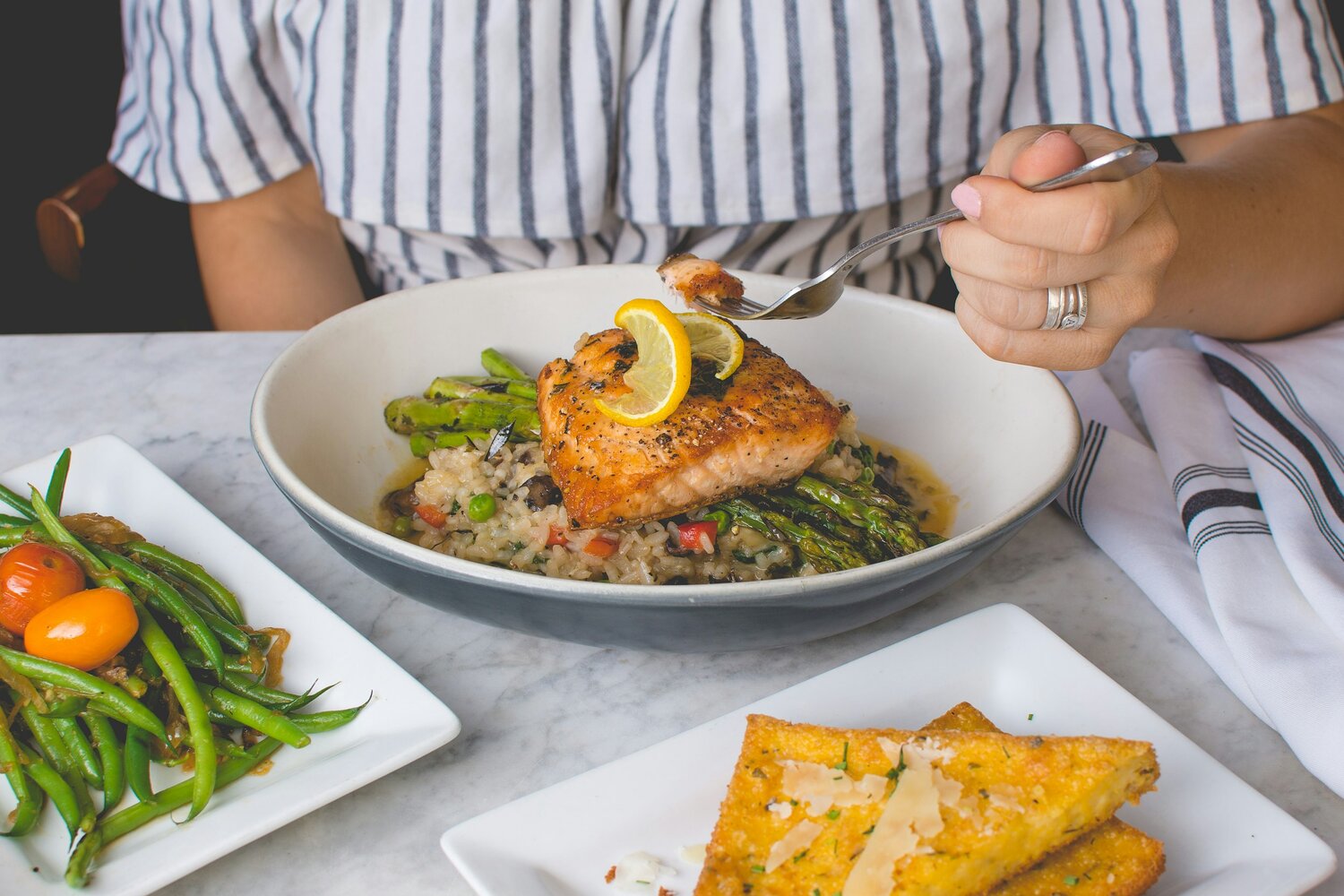Inflammation is generally understood as a localized immune response to a cellular injury (like when you get a cut). This inflammatory process exists to help your body heal and recover. However, if it’s still ongoing even when there’s no longer a reason for it, inflammation becomes problematic.
There are many factors that can trigger inflammation as part of our day-to-day lives. Not only that but if we’re not taking care of our bodies optimally, this can contribute to prolonged inflammation. This negatively impacts overall health and makes athletic performance suffer.
When does inflammation go from helpful to harmful? What factors are involved in how your body handles inflammation? Let’s talk about how to reduce inflammation in the body fast.
Understanding Inflammation
When your body experiences injury or illness, it triggers an immune response. Part of this response is the release of inflammatory cells and cytokines (substances that make more inflammatory cells), which attack harmful microbes or help heal damaged tissues. But while inflammation is intended to help your body recover, there’s a fine line between just enough and too much.
There are two types of inflammation: acute and chronic.
Acute inflammation
Acute inflammation is generally short-lived and targeted to help your body heal from a specific threat, like an infection or a skin wound. The result might be temporary redness, pain, swelling, or bruising. Once the threat is neutralized, the inflammatory cells recede until they’re needed again and your body goes back to its normal state.
Chronic inflammation
Chronic inflammation is when the immune system continues to send out an inflammatory response when it’s not actually needed. For example, if you have rheumatoid arthritis, your joints are attacked by inflammatory cells which can lead to painful and damaged tissues.
Symptoms of chronic inflammation might include:
-
Fever
-
Joint pain and stiffness
-
Skin rash
-
Chest pain
-
Fatigue
-
Abdominal pain
Untreated chronic inflammation has been linked to the development of serious health problems, such as Alzheimer’s disease, heart disease, type 2 diabetes, asthma, rheumatoid arthritis, and cancer.
That’s why it’s so important to tackle inflammation in your body when it’s not supposed to be there. Let’s take a look at how chronic inflammation can be triggered or worsened by everyday habits and how different choices can reduce it.
Diet and Nutrition
Food plays a significant role in every aspect of health, so if you’re wondering how to reduce inflammation, nutrition is key. Think about it: most of us are eating at least three times a day most days. This means there are plenty of opportunities to either promote inflammation or reduce it through our choices.
Anti-inflammatory foods
The best way to help keep inflammation in check through food is to eat in a way that emphasizes anti-inflammatory foods as much as possible, such as:
-
Antioxidants: Antioxidants help protect cellular health from inflammation, stress, and damage. Among the best sources of antioxidants are fruits and vegetables. Aim to eat a wide variety of colors, like berries, oranges, leafy greens, eggplant, bell peppers, and tomatoes.
-
Fiber: Getting enough fiber helps keep inflammation at bay and supports your digestion, heart health, and blood sugar control. Surveys show that just 5% of American adults get their minimum daily fiber needs, which is only around 30 grams. Find fiber in plant foods, including fruits, vegetables, whole grains, nuts, seeds, and legumes (beans, peas, and lentils).
-
Whole grains: When choosing what breads and pastas to eat, whole grains give you the most for your anti-inflammatory buck. They contain unique phytochemicals and impact your gut bacteria in a way that fights inflammation. Unlike refined grains, whole grains have not been processed to remove their fiber and other nutrients. Some good options include quinoa, barley, oats, brown rice, 100% whole wheat bread, and millet.
-
Omega-3 fatty acids: These unsaturated fats are essential for brain and eye health and are key players in your body’s inflammatory process. However, we tend to get too many omega-6 fats in our Western diet, which has a pro-inflammatory effect in excess.
Increase your omega-3s by eating fatty fish, like salmon, tuna, halibut, and mackerel. You can also find some in chia and flax seeds. If you don’t eat fish often, consider a fish oil or algae-based DHA supplement.
-
Turmeric: The bioactive compound in turmeric is called curcumin. It’s been extensively studied for its anti-inflammatory and antioxidant effects in the body. Use turmeric and black pepper together in recipes to increase curcumin’s bioavailability by 2000%.
Foods to avoid
It’s equally important to keep foods that promote inflammation to a minimum in your diet. Some of the most pro-inflammatory foods are those that are ultra-processed. This means they have been processed to a point of such low nutritional quality that they do more harm than good for your body.
In other words, you’re not going to find much in the way of antioxidants, fiber, vitamins, and minerals in these. Instead, they contribute saturated and trans fats, sodium, and added sugar, as well as other unnecessary food additives.
Unfortunately, ultra-processed foods are rampant in the Western diet pattern and can be difficult to avoid. Examples include:
-
Processed meats, like bacon, sausage, and hotdogs
-
Fast food items
-
Frozen convenience foods that are high in sodium
-
Sugary beverages, like soda, fruit juices, and certain sports drinks
-
Refined carbohydrates like rice, crackers, breads, and pastas made from white flour
-
Packaged snack items, like cookies, potato chips, and candy
Lifestyle Modifications
As you’re designing a more anti-inflammatory diet, consider other areas of your everyday life that may be contributing to inflammation. Here are some of the ways that research shows can help:
-
Getting regular exercise. Include a variety of activities you enjoy most days of the week. Perhaps this is a combination of running, resistance training, high-intensity interval training, and playing sports.
-
Practicing healthy stress management. Techniques like journaling, stretching and yoga, meditation, listening to music, or walking in nature can help reduce stress which, in turn, benefits inflammation.
-
Getting adequate sleep. Inconsistent sleep can promote inflammation. Experts recommend at least 7 hours of quality sleep per night for adults. To improve your sleep, avoid blue lights too close to bedtime as this can disrupt your melatonin production. Create a sleep-promoting environment in your bedroom and try to follow the same sleep-wake cycle every day.
The Takeaway
It’s impossible to avoid everything that encourages inflammation, but there are ways to improve how your body responds to it. Take a holistic approach that incorporates healthier everyday lifestyle and dietary habits. Remember that this doesn’t have to be perfect and that major changes don’t happen overnight. Instead, take steps toward reducing inflammation in your life and preparing your body to have a healthier response to things that may trigger it.
Need personalized guidance on how to reduce inflammation? We’d love to help! Get in touch with us for nutrition coaching.
.
.
.
#Reduce #Inflammation #Body #Tips #Eleat #Sports #Nutrition
Source link








